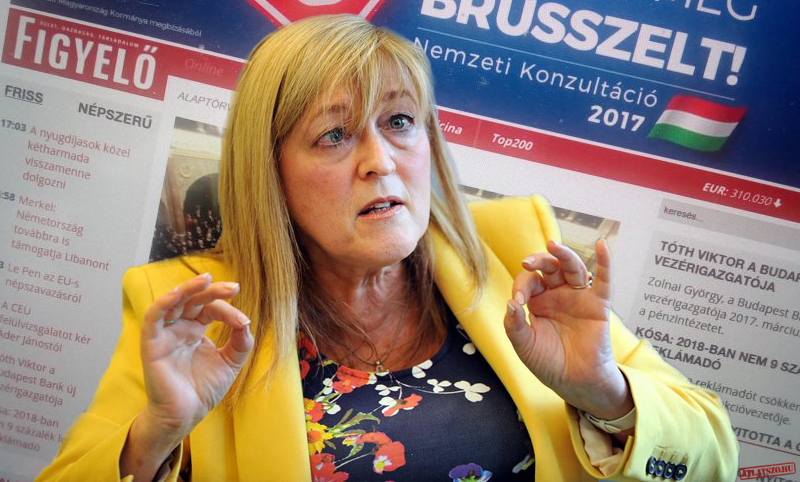The https://english.atlatszo.hu use cookies to track and profile customers such as action tags and pixel tracking on our website to assist our marketing. On our website we use technical, analytical, marketing and preference cookies. These are necessary for our site to work properly and to give us inforamation about how our site is used. See Cookies Policy
Hungary by Atlatszo: Silent MEPs, government-friendly NGOs and one more media outlet turned inside out
This is what Atlatszo.hu wrote this week:
Political takeover turns prestigious weekly inside out
Hungary’s popular business magazine, Figyelő, was one of the last independent media outlets in the country. However, the appetite of the governing party is bottomless when it comes to media: Figyelő is the most recent publication that fell into the political domain of Hungary’s governing power. As Atlatszo.hu learned, the new ownership has enacted brutal changes at the magazine that has lost 17% of its subscribers as a result of the shift.

Huge donation from state coffers for the government’s favorite NGO
While the Hungarian government is busy dismantling the country’s civil society, it is all too happy to provide ample funding to other so-called NGOs that are secret subsidiaries of the political propaganda apparatus. Atlatszo.hu has explored and exposed one such group that will, in all likeliness, play a major role in the 2018 general elections. Hungary’s state-owned energy group MVM Zrt has provided more than HUF 500 million in funding to the COF-COKA cluster, NGOs in name but fully loyal to the governing Fidesz party.
Budapest council approves dam without risk assessment or contingency plan
The municipal assembly of Budapest at the beginning of April approved the construction of a mobile dam system on the northern Buda side, to protect the so-called ‘Roman riverbank’ section of the town along the Danube. Mayor István Tarlós claims that the project, which has been controversial ever since the idea was floated, is professionally and scientifically well-founded. However, Atlatszo was told by relevant authorities that officials decided on the project before planners finished the contingency plan and risk assessment.
European Parliament under pressure for spending taxpayer money on ‘ghost offices’
Each member of the European Parliament receives a so-called General Expenditure Allowance (GEA), costing the EU around €40 million annually. The 4342 euros every month are intended to fund an office in their own country, but following research by journalists at ‘The MEPs Project,’ it seems the funds are potentially being misused. A series of investigations across the 28 member states found at least 41 cases where MEPs pay rent to national political parties or even to their own personal accounts.
Hungarian MEPs from the governing party silent about office rent
None of the twelve Hungarian MEPs from the governing Fidesz party answered our questions about how they are spending their monthly General Expenditure Allowance that they receive from the European Parliament. That money should primarily be used to rent an office in their home countries, but they are not required to account for how they are spending the money.
We also read these:
The Budapest Beacon: Hungary ranked last in EU for solar power
The growth of solar power has slowed down in Hungary even though the sector is booming worldwide. The president of the Hungarian Solar Industry Association, Ádám Szolnoki says that one of the leading causes of the slowdown is the legal uncertainty that prevents long-term planning.
IRIN: Welcome to refugee purgatory on the Hungary border
Thousands of migrants and refugees trying to reach northern Europe have become trapped in Serbia. After months of living in squalid conditions in abandoned buildings or overcrowded reception centres, many attempt to cross into Hungary. Few succeed.
The Budapest Beacon: Hungarian health-care experiencing acute shortage of professionals
More than 5,000 pension-aged physicians and nurses have been granted exemptions under the “work or retirement” governmental decree in force since 2013. Now health-care sector managers and interest groups are calling for the decree to be reviewed.
The Economist: What to do when Viktor Orban erodes democracy
Mr Orban has spent the past two years attacking Europe over its refugee policy, and has erected billboards across the country proclaiming “Let’s Stop Brussels!” Yet the EU remains popular. Three-quarters of Hungarians want to remain members of the union. More trust the EU than their own national government.
[sharedcontent slug=”hirdetes-english”]

